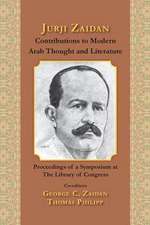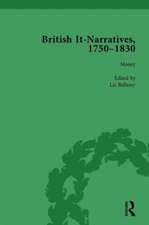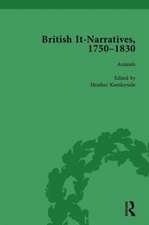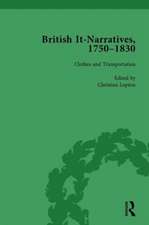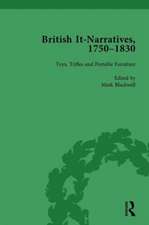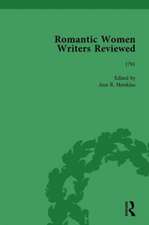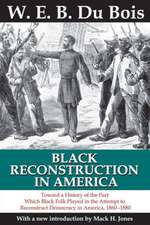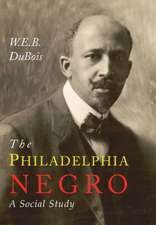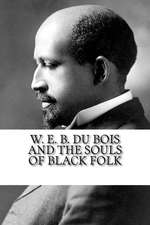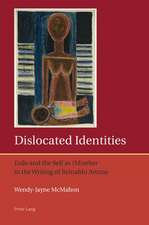The Souls of Black Folk
Autor W. E. B. DuBoisen Limba Engleză Paperback – 8 oct 2018
Preț: 66.83 lei
Nou
12.79€ • 13.28$ • 10.66£
Comandă specială
Livrare economică 25 februarie-03 martie
Specificații
ISBN-10: 1728616735
Pagini: 120
Dimensiuni: 216 x 279 x 6 mm
Greutate: 0.3 kg
Editura: LIGHTNING SOURCE INC
Extras
OF OUR SPIRITUAL STRIVINGS
O water, voice of my heart, crying in the sand,
All night long crying with a mournful cry,
As I lie and listen, and cannot understand
The voice of my heart in my side or the voice of the sea,
O water, crying for rest, is it I, is it I?
All night long the water is crying to me.
Unresting water, there shall never be rest
Till the last moon droop and the last tide fail,
And the fire of the end begin to burn in the west;
And the heart shall be weary and wonder and cry like the sea,
All life long crying without avail,
As the water all night long is crying to me.
Aarthur symons
Between me and the other world there is ever an unasked question: unasked by some through feelings of delicacy; by others through the difficulty of rightly framing it. All, nevertheless, flutter round it. They approach me in a half-hesitant sort of way, eye me curiously or compassionately, and then, instead of saying directly, How does it feel to be a problem? they say, I know an excellent colored man in my town; or, I fought at Mechanicsville; or, Do not these Southern outrages make your blood boil? At these I smile, or am interested, or reduce the boiling to a simmer, as the occasion may require. To the real question, How does it feel to be a problem? I answer seldom a word.
And yet, being a problem is a strange experience,--peculiar even for one who has never been anything else, save perhaps in babyhood and in Europe. It is in the early days of rollicking boyhood that the revelation first bursts upon one, all in a day, as it were. I remember well when the shadow swept across me. I was a little thing, away up in the hills of New England, where the dark Housatonic winds between Hoosac and Taghkanic to the sea. In a wee wooden schoolhouse, something put it into the boys' and girls' heads to buy gorgeous visiting-cards--ten cents a package--and exchange. The exchange was merry, till one girl, a tall newcomer, refused my card,--refused it peremptorily, with a glance. Then it dawned upon me with a certain suddenness that I was different from the others; or like, mayhap, in heart and life and longing, but shut out from their world by a vast veil. I had thereafter no desire to tear down that veil, to creep through; I held all beyond it in common contempt, and lived above it in a region of blue sky and great wandering shadows. That sky was bluest when I could beat my mates at examination-time, or beat them at a foot-race, or even beat their stringy heads. Alas, with the years all this fine contempt began to fade; for the words I longed for, and all their dazzling opportunities, were theirs, not mine. But they should not keep these prizes, I said; some, all, I would wrest from them. Just how I would do it I could never decide: by reading law, by healing the sick, by telling the wonderful tales that swam in my head,--some way. With other black boys the strife was not so fiercely sunny: their youth shrunk into tasteless sycophancy, or into silent hatred of the pale world about them and mocking distrust of everything white; or wasted itself in a bitter cry, Why did God make me an outcast and a stranger in mine own house? The shades of the prison-house closed round about us all: walls strait and stubborn to the whitest, but relentlessly narrow, tall, and unscalable to sons of night who must plod darkly on in resignation, or beat unavailing palms against the stone, or steadily, half hopelessly, watch the streak of blue above.
After the Egyptian and Indian, the Greek and Roman, the Teuton and Mongolian, the Negro is a sort of seventh son, born with a veil, and gifted with second-sight in this American world,--a world which yields him no true self-consciousness, but only lets him see himself through the revelation of the other world. It is a peculiar sensation, this double-consciousness, this sense of always looking at one's self through the eyes of others, of measuring one's soul by the tape of a world that looks on in amused contempt and pity. One ever feels his twoness,--an American, a Negro; two souls, two thoughts, two unreconciled strivings; two warring ideals in one dark body, whose dogged strength alone keeps it from being torn asunder.
The history of the American Negro is the history of this strife,--this longing to attain self-conscious manhood, to merge his double self into a better and truer self. In this merging he wishes neither of the older selves to be lost. He would not Africanize America, for America has too much to teach the world and Africa. He would not bleach his Negro soul in a flood of white Americanism, for he knows that Negro blood has a message for the world. He simply wishes to make it possible for a man to be both a Negro and an American, without being cursed and spit upon by his fellows, without having the doors of Opportunity closed roughly in his face.
This, then, is the end of his striving: to be a co-worker in the kingdom of culture, to escape both death and isolation, to husband and use his best powers and his latent genius. These powers of body and mind have in the past been strangely wasted, dispersed, or forgotten. The shadow of a mighty Negro past flits through the tale of Ethiopia the Shadowy and of Egypt the Sphinx. Through history, the powers of single black men flash here and there like falling stars, and die sometimes before the world has rightly gauged their brightness. Here in America, in the few days since Emancipation, the black man's turning hither and thither in hesitant and doubtful striving has often made his very strength to lose effectiveness, to seem like absence of power, like weakness. And yet it is not weakness,--it is the contradiction of double aims. The double-aimed struggle of the black artisan--on the one hand to escape white contempt for a nation of mere hewers of wood and drawers of water, and on the other hand to plough and nail and dig for a poverty-stricken horde--could only result in making him a poor craftsman, for he had but half a heart in either cause. By the poverty and ignorance of his people, the Negro minister or doctor was tempted toward quackery and demagogy; and by the criticism of the other world, toward ideals that made him ashamed of his lowly tasks. The would-be black savant was confronted by the paradox that the knowledge his people needed was a twice-told tale to his white neighbors, while the knowledge which would teach the white world was Greek to his own flesh and blood. The innate love of harmony and beauty that set the ruder souls of his people a-dancing and a-singing raised but confusion and doubt in the soul of the black artist; for the beauty revealed to him was the soul-beauty of a race which his larger audience despised, and he could not articulate the message of another people. This waste of double aims, this seeking to satisfy two unreconciled ideals, has wrought sad havoc with the courage and faith and deeds of ten thousand thousand people,--has sent them often wooing false gods and invoking false means of salvation, and at times has even seemed about to make them ashamed of themselves.
Away back in the days of bondage they thought to see in one divine event the end of all doubt and disappointment; few men ever worshipped Freedom with half such unquestioning faith as did the American Negro for two centuries. To him, so far as he thought and dreamed, slavery was indeed the sum of all villainies, the cause of all sorrow, the root of all prejudice; Emancipation was the key to a promised land of sweeter beauty than ever stretched before the eyes of wearied Israelites. In song and exhortation swelled one refrain--Liberty; in his tears and curses the God he implored had Freedom in his right hand. At last it came,--suddenly, fearfully, like a dream. With one wild carnival of blood and passion came the message in his own plaintive cadences:--
"Shout, O children!
Shout, you're free!
For God has bought your liberty!"
Years have passed away since then,--ten, twenty, forty; forty years of national life, forty years of renewal and development, and yet the swarthy spectre sits in its accustomed seat at the Nation's feast. In vain do we cry to this our vastest social problem:--
"Take any shape but that, and my firm nerves
Shall never tremble!"
The Nation has not yet found peace from its sins; the freedman has not yet found in freedom his promised land. Whatever of good may have come in these years of change, the shadow of a deep disappointment rests upon the Negro people,--a disappointment all the more bitter because the unattained ideal was unbounded save by the simple ignorance of a lowly people.
The first decade was merely a prolongation of the vain search for freedom, the boon that seemed ever barely to elude their grasp,--like a tantalizing will-o'-the-wisp, maddening and misleading the headless host. The holocaust of war, the terrors of the Ku-Klux Klan, the lies of carpet-baggers, the disorganization of industry, and the contradictory advice of friends and foes, left the bewildered serf with no new watchword beyond the old cry for freedom. As the time flew, however, he began to grasp a new idea. The ideal of liberty demanded for its attainment powerful means, and these the Fifteenth Amendment gave him. The ballot, which before he had looked upon as a visible sign of freedom, he now regarded as the chief means of gaining and perfecting the liberty with which war had partially endowed him. And why not? Had not votes made war and emancipated millions? Had not votes enfranchised the freedmen? Was anything impossible to a power that had done all this? A million black men started with renewed zeal to vote themselves into the kingdom. So the decade flew away, the revolution of 1876 came, and left the half-free serf weary, wondering, but still inspired. Slowly but steadily, in the following years, a new vision began gradually to replace the dream of political power,--a powerful movement, the rise of another ideal to guide the unguided, another pillar of fire by night after a clouded day. It was the ideal of "book-learning"; the curiosity, born of compulsory ignorance, to know and test the power of the cabalistic letters of the white man, the longing to know. Here at last seemed to have been discovered the mountain path to Canaan; longer than the highway of Emancipation and law, steep and rugged, but straight, leading to heights high enough to overlook life.
Up the new path the advance guard toiled, slowly, heavily, doggedly; only those who have watched and guided the faltering feet, the misty minds, the dull understandings, of the dark pupils of these schools know how faithfully, how piteously, this people strove to learn. It was weary work. The cold statistician wrote down the inches of progress here and there, noted also where here and there a foot had slipped or some one had fallen. To the tired climbers, the horizon was ever dark, the mists were often cold, the Canaan was always dim and far away. If, however, the vistas disclosed as yet no goal, no resting-place, little but flattery and criticism, the journey at least gave leisure for reflection and self-examination; it changed the child of Emancipation to the youth with dawning self-consciousness, self-realization, self-respect. In those sombre forests of his striving his own soul rose before him, and he saw himself,--darkly as through a veil; and yet he saw in himself some faint revelation of his power, of his mission. He began to have a dim feeling that, to attain his place in the world, he must be himself, and not another. For the first time he sought to analyze the burden he bore upon his back, that dead-weight of social degradation partially masked behind a half-named Negro problem. He felt his poverty; without a cent, without a home, without land, tools, or savings, he had entered into competition with rich, landed, skilled neighbors. To be a poor man is hard, but to be a poor race in a land of dollars is the very bottom of hardships. He felt the weight of his ignorance,--not simply of letters, but of life, of business, of the humanities; the accumulated sloth and shirking and awkwardness of decades and centuries shackled his hands and feet. Nor was his burden all poverty and ignorance. The red stain of bastardy, which two centuries of systematic legal defilement of Negro women had stamped upon his race, meant not only the loss of ancient African chastity, but also the hereditary weight of a mass of corruption from white adulterers, threatening almost the obliteration of the Negro home.
A people thus handicapped ought not to be asked to race with the world, but rather allowed to give all its time and thought to its own social problems. But alas! while sociologists gleefully count his bastards and his prostitutes, the very soul of the toiling, sweating black man is darkened by the shadow of a vast despair. Men call the shadow prejudice, and learnedly explain it as the natural defence of culture against barbarism, learning against ignorance, purity against crime, the "higher" against the "lower" races. To which the Negro cries Amen! and swears that to so much of this strange prejudice as is founded on just homage to civilization, culture, righteousness, and progress, he humbly bows and meekly does obeisance. But before that nameless prejudice that leaps beyond all this he stands helpless, dismayed, and well-nigh speechless; before that personal disrespect and mockery, the ridicule and systematic humiliation, the distortion of fact and wanton license of fancy, the cynical ignoring of the better and the boisterous welcoming of the worse, the all-pervading desire to inculcate disdain for everything black, from Toussaint to the devil,--before this there rises a sickening despair that would disarm and discourage any nation save that black host to whom "discouragement" is an unwritten word.
But the facing of so vast a prejudice could not but bring the inevitable self-questioning, self-disparagement, and lowering of ideals which ever accompany repression and breed in an atmosphere of contempt and hate. Whisperings and portents came borne upon the four winds: Lo! we are diseased and dying, cried the dark hosts; we cannot write, our voting is vain; what need of education, since we must always cook and serve? And the Nation echoed and enforced this self-criticism, saying: Be content to be servants, and nothing more; what need of higher culture for half-men? Away with the black man's ballot, by force or fraud,--and behold the suicide of a race!
Nevertheless, out of the evil came something of good,--the more careful adjustment of education to real life, the clearer perception of the Negroes' social responsibilities, and the sobering realization of the meaning of progress.
Notă biografică
About the Author:
William Edward Burghardt "W. E. B." Du Bois (1868 ¿ 1963) was an American sociologist, historian, civil-rights activist, Pan-Africanist, author, and editor. Born in Great Barrington, Massachusetts, Du Bois grew up in a relatively tolerant and integrated community. After completing graduate work at the University of Berlin and Harvard, where he was the first African American to earn a doctorate, he became a professor of history, sociology and economics at Atlanta University. Du Bois was one of the co-founders of the National Association for the Advancement of Colored People (NAACP) in 1909. He rose to national prominence as the leader of the Niagara Movement, a group of African-American activists who wanted equal rights for blacks. He was a proponent of Pan-Africanism and helped organize several Pan-African Congresses to fight for independence of African colonies from European powers. His collection of essays, The Souls of Black Folk (1903), was a seminal work in African-American literature. The United States' Civil Rights Act, embodying many of the reforms for which Du Bois had campaigned his entire life, was enacted a year after his death.
About the Introducer:
Vann R. Newkirk II is a staff writer at The Atlantic, where he covers politics and policy. Prior to work at The Atlantic, Vann was at Daily Kos, where he focused on justice and health issues, specifically the intersection of policy, race, class, and culture. He has also contributed articles, essays, and photography to sites such as GQ, Gawker, Grantland, and Ebony. Vann is also the founder of Seven Scribes and a contributing editor.
About the Illustrator:
Steve Prince is an artist, educator, and art evangelist. He is a native of New Orleans, and the rhythms of the city's art, music, and religion pulsate through his work. Steve's favorite medium is linoleum cut printmaking. Through his complex compositions and rich visual vocabulary, Steve creates powerful narrative images that express his unique vision founded in hope, faith, and creativity.
Recenzii
"Given that thousands of pages have been written on Du Bois and his magnum opus, it is truly remarkable that Holloway manages to convey the richness and diversity of both man and text in so short a space. The introduction does an excellent job arguing for the continued relevance of Du Bois in our contemporary 'post-racial' world."—Nico Slate, Carnegie Mellon University
"W.E.B. Du Bois’ Souls of Black Folk is one of the most iconic texts of the twentieth century. But Jonathan Scott Holloway’s graceful new introduction brings Souls forward to a new generation as more than a primary source of our racial past, now serving as a scythe to help cut through the maddening claims of a post-racial present. Holloway powerfully asserts that 'a "post racial consciousness" is a false consciousness,' while DuBois’ prophetic diagnosis of a color line continues to ail the world today as much as ever before."—Davarian L. Baldwin, author of Chicago's New Negroes
Textul de pe ultima copertă
Descriere
'The problem of the twentieth-century is the problem of the color-line.'Originally published in 1903, The Souls of Black Folk is a classic study of race, culture, and education at the turn of the twentieth century. With its singular combination of essays, memoir, and fiction, this book vaulted W. E. B. Du Bois to the forefront of American political commentary and civil rights activism. The Souls of Black Folk is an impassioned, at times searing account of the situation of African Americans in the United States. Du Bois makes a forceful case for the access of African Americans to higher education, memorably extols the achievements of black culture (above all the spirituals or 'sorrow songs'), and advances the provocative and influential argument that due to the inequalities and pressures of the 'race problem', African American identity is characterized by 'double consciousness'.This edition includes a valuable appendix of other writing by Du Bois, which sheds light on his attitudes and intentions. ABOUT THE SERIES: For over 100 years Oxford World's Classics has made available the widest range of literature from around the globe. Each affordable volume reflects Oxford's commitment to scholarship, providing the most accurate text plus a wealth of other valuable features, including expert introductions by leading authorities, helpful notes to clarify the text, up-to-date bibliographies for further study, and much more.


